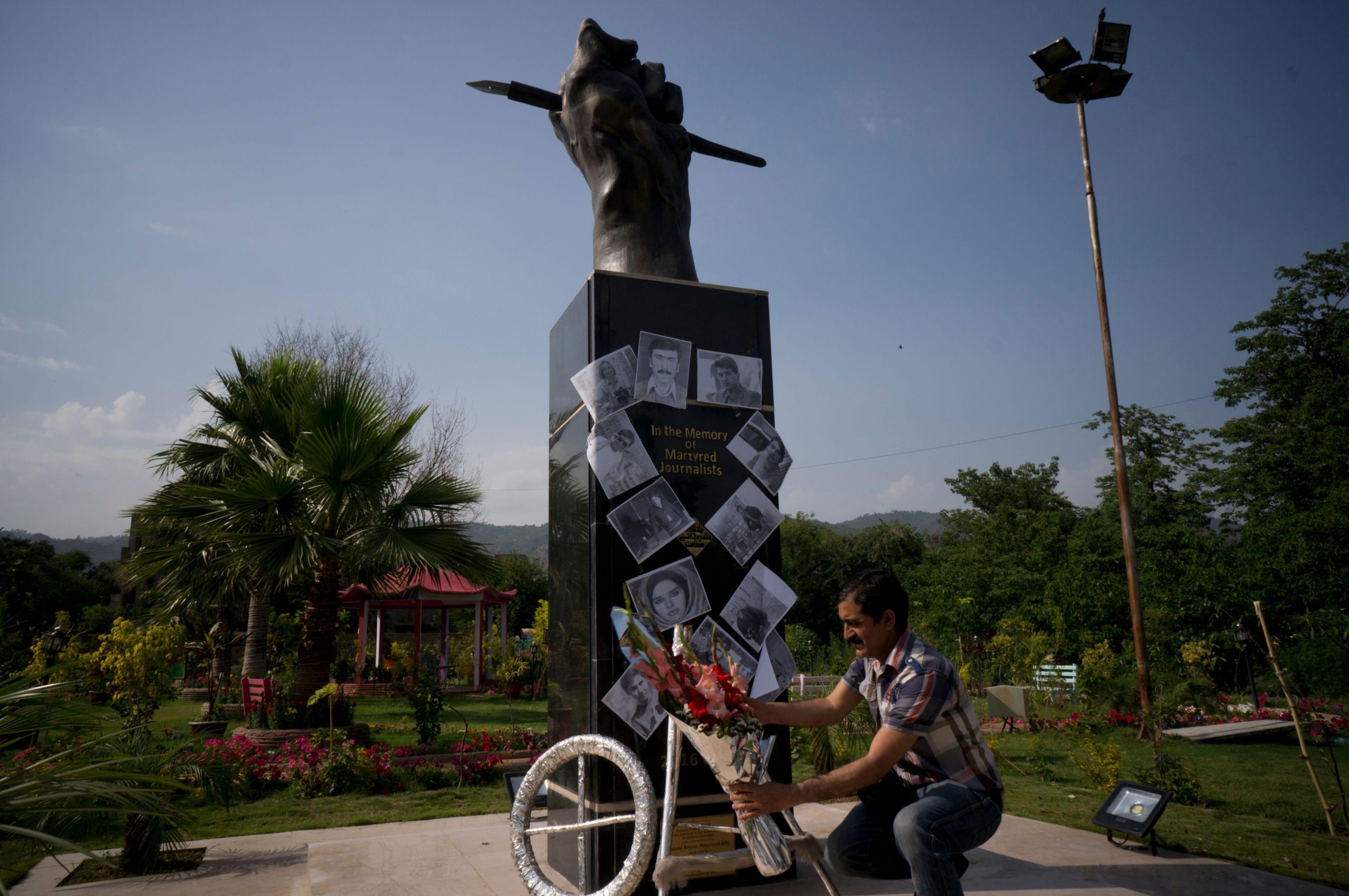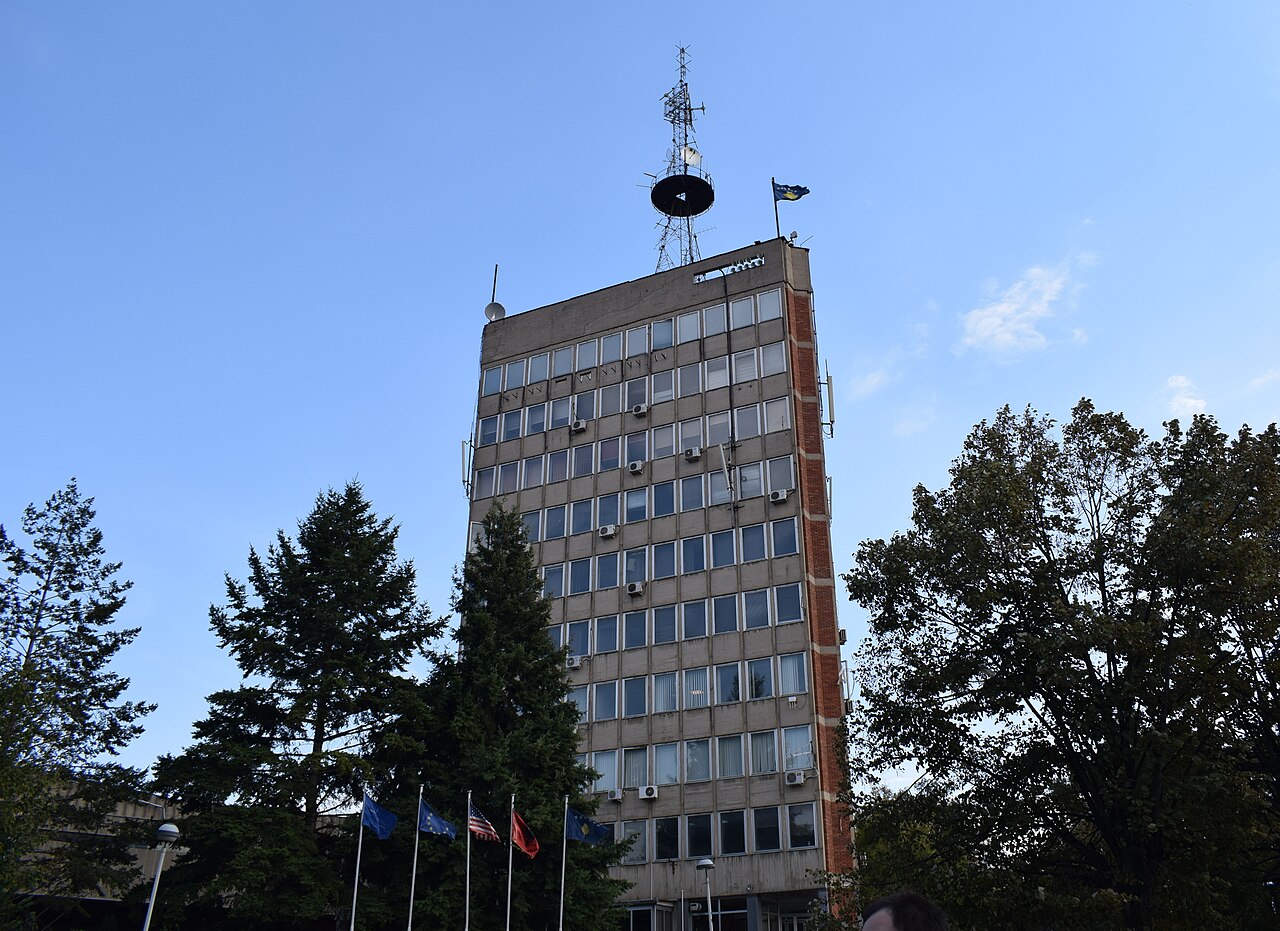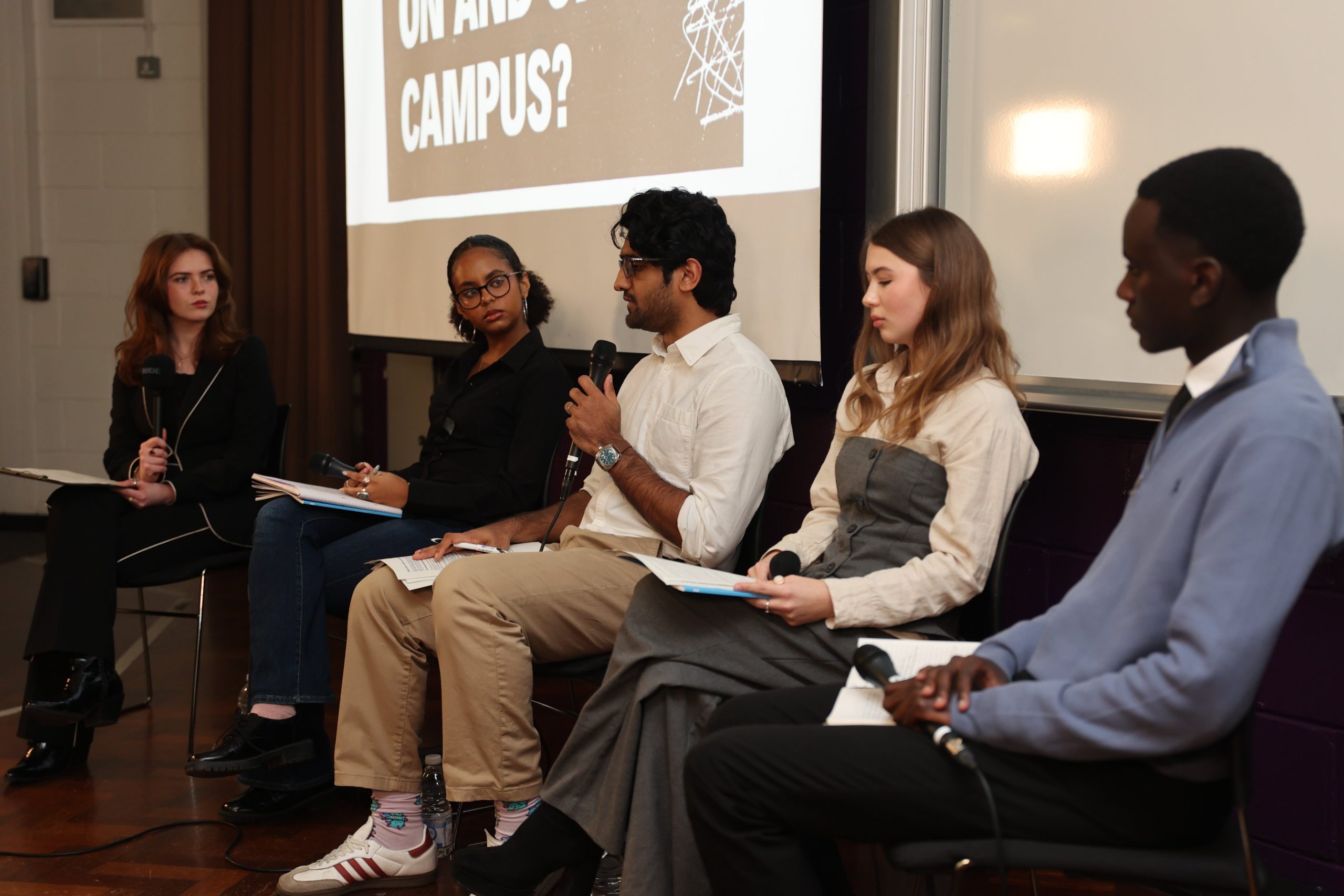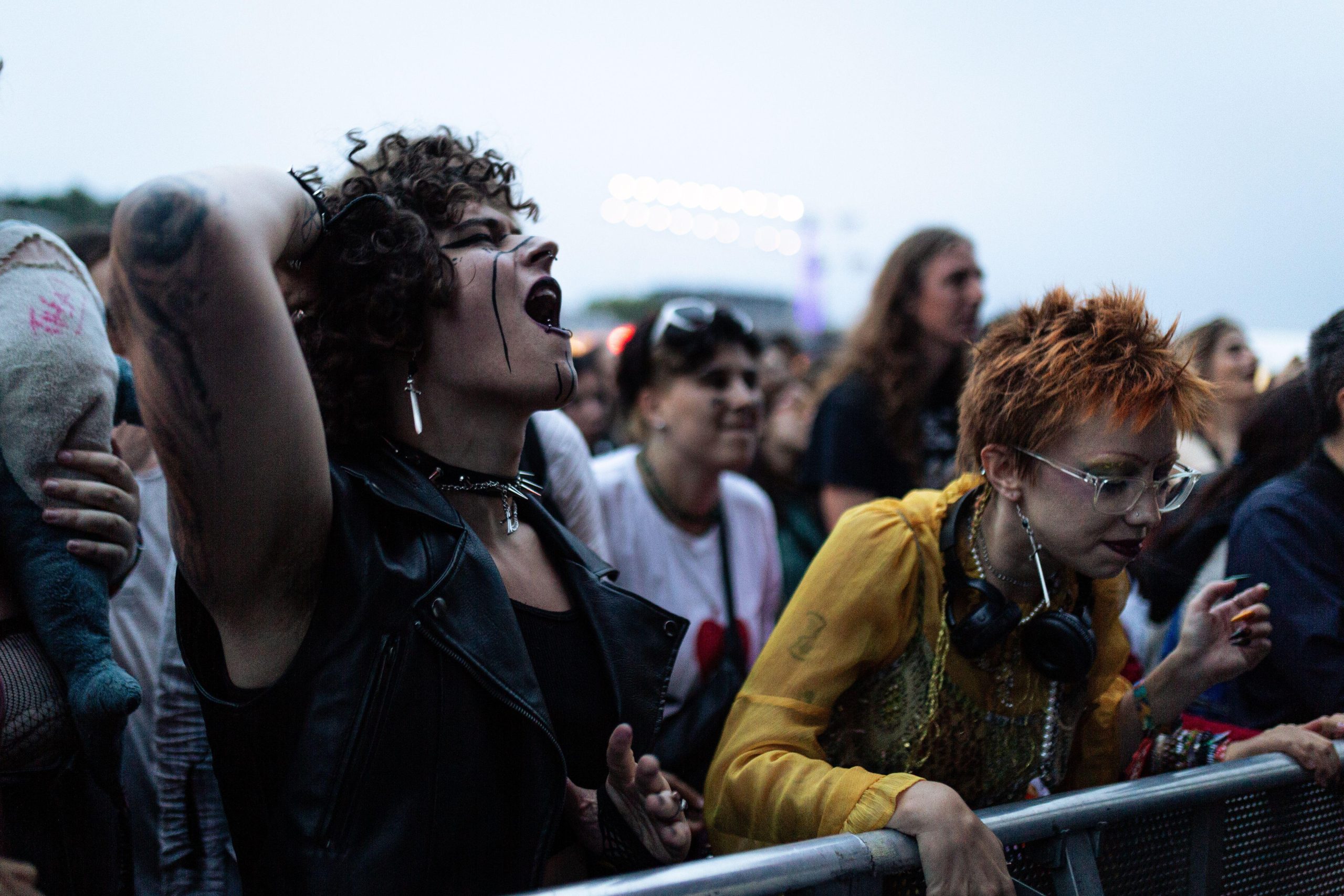Inside the National Press Club (NPC) of Islamabad stands a column topped with a hand cast in iron and holding a pen, which shows the concept of a free press. But unfortunately, realities on the ground are quite different in the capital, let alone other parts of Pakistan. The proof: On 2 October 2025, the police carried out a raid at the NPC and assaulted journalists present inside the press club.
Journalists’ unions and human rights bodies have condemned the assault by the Islamabad police in the strongest terms with the Human Rights Commission of Pakistan (HRCP) demanding an immediate inquiry and saying that those responsible should be brought to book.
During my visit to the press club this month, I met journalists, photographers, and cameramen who were assaulted by the police. One of them was Mohammad Shezad. According to him, he was beaten up by officers carrying out the raid.
“The cops grabbed me by my shirt,” he told Index on Censorship. “As I resisted, they ripped my shirt across the back.”
Dawn, Pakistan’s largest English-language daily broadsheet, condemned the raid the very next day in an editorial, calling it “a trend that one associates with authoritarian regimes, which crush protest and cannot tolerate even peaceful dissent”.
“On that very day, there were three demonstrations at the press club,” recalled Azhar Jatoi, the president of the NPC, during an interview with Index. “The JKJAAC (Jammu Kashmir Joint Awami Action Committee) had issued a call for a demonstration at the press club, and they were surrounded by the police as soon as they started demonstrating.”
The JKJAAC is an alliance demanding civil liberties and political rights in the Kashmir region in Pakistan, an end to special privileges for government officials, the restoration of student unions, access to free and quality healthcare and education, among other things.
The organisation had engaged in talks with the government which failed, and that is why they called for a region-wide strike on 29 September. In the lead up to the strike, the government shut down all mobile, landline and internet services in the region, but unfortunately, the protests soon turned violent. According to a report by Reuters, eight were killed in the protests.
As a result, the JKJAAC protestors went to demonstrate outside the National Press Club in Islamabad, so their demonstrations could be peacefully recorded.
According to Jatoi, the police started assaulting the journalists to stop them reporting on how the protesters were being beaten and dragged away.
Rashed Ahmad, who works at the press club, said while talking to Index that he too was beaten up by the police when he wanted to close the gate.
Most of the journalists present at the NPC complained about the police raid, calling it an attack against the press freedom in Pakistan. One of them was Ishaque Chaudry, a senior journalist in Islamabad who said that there had been attacks on the press club before.
“This is not the first time that the journalists have been assaulted at the press club. In the past, these kinds of incidents have taken place too,” he told Index. He added that these attacks were happening when Pakistan had a democratic government, and not when the country had been under military rule.
Other journalists echoed the same claims. Afzal Butt, the president of PFUJ (Pakistan Federal Union of Journalists), termed the assault “one of the darkest days” in Pakistan while talking about the press club raid.
It is interesting to note that Islamabad used to be a safe place for journalists. But over the last few years, it has become unsafe. According to an annual press freedom report by Freedom Network, Islamabad was termed in 2024 as the “second most dangerous place to practise journalism” in the country with a quarter of all attacks on journalists happening in the capital.
This is not something surprising. The most senior journalists, known nationally in the country, have been attacked in Islamabad for years. In 2017, a senior investigative journalist of The News Ahmed Noorani was assaulted by knife-wielding assailants along with his driver in Islamabad. Due to the persistent threats to his life, he fled the country.
In 2021, prominent Pakistani journalist Asad Toor was assaulted by three unidentified men who broke into his apartment in Islamabad. In the same year, senior journalist Absar Alam too was shot and injured in an attack in Islamabad.
The list of assaults against journalists in Islamabad goes on. But the reporters this time around were lucky enough to survive. They are lucky in the sense that Pakistan is still one the deadliest countries for journalists to work in the world according to the latest figures from Reporters without Borders. At least 138 journalists have been killed in the country since 1990.
Instead of protecting journalists, government-sponsored advertisements appeared in media on the same day as the police carried out the raid on the press club, portraying journalists, freelancers, and others as anti-state.
Farooq Sulehria, a teacher at Beaconhouse National University in Lahore and author of the books on the media in Pakistan, told Index that the raid on the press club was part of “a creeping authoritarianism in Pakistan”.
He further explained that by creeping authoritarianism he meant the increasing repression of the state in Pakistan, which was affecting aspects of life where it was not present before. “For instance, the police carried out a raid inside the press club in Islamabad which people could hardly think that could happen,” he said.
In his concluding remarks, journalist Ishaque Chaurdy comes up with a disconcerting view while talking about police raid at the club: “If this is the case in the capital for journalists, then the situation for journalists is obviously quite worse than we can imagine in rest of Pakistan.”






